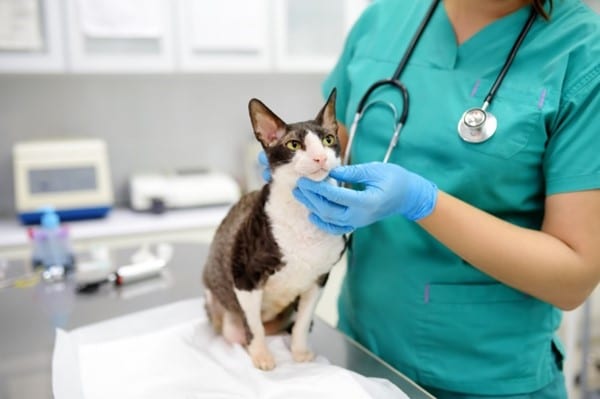Interactions with Other Drugs
Before administering diltiazem to your cat or dog, make sure that your veterinarian is already aware of any other medications your pet is on. The board-certified veterinary cardiologists at CVCA have already taken these medications and interactions into account, but please contact us regarding any other concurrent medications your pet may be prescribed. Here are some of the common interactions we see:
- Beta-Blockers (Atenolol), Amlodipine, Acepromazine, Acei (Enalapril, Benazepril): When diltiazem is used in combination with any of these medications, there is an increased risk of low heart rate and low blood pressure.
- Benzodiazepines (Valium/Alprazolam) and Cyclosporine: Diltiazem can increase the strength of these certain drugs.

Patient Information on Diltiazem
At CVCA, we want to make sure you’re aware of all of the possible diltiazem side effects and know how to easily administer the medication. Your CVCA veterinarian will give you detailed instructions, but here are a few essential tips to remember:
- Diltiazem can be given with food and other cardiac medications as outlined by CVCA.
- This medication is given in pill form or reformulated into a flavored liquid, whatever is easiest for your cat or dog.
- Depending on drug formulation and/or the disease being treated, diltiazem is given 1 to 3 times daily.
- We recommend closely monitoring your cat or dog’s blood pressure and heart rate while on this medication.
- Do not abruptly stop or reduce this medication therapy without your veterinarian’s approval.
- If anesthesia is required to administer the medication, contact your veterinarian about the dosage.
Dosage Forms of Diltiazem
Diltiazem for dogs and cats comes in several medication forms. If your pet has difficulty taking one type of this medication, talk to one of the vets at CVCA to see what other forms may be possible. Here are the most common dosages you will see prescribed:
- Diltiazem Tablets – 30mg, 60mg, 90mg, and 120mg
- Diltiazem Extended-Release Oral Capsules – 120mg, 180mg, and 240mg
- Note: You may need to open the capsule and remove the four individual tablets and administer one or more of the tablets, depending on dosage requirements
- Cardizem CD Capsules – 120mg, 180mg, 240mg, and 300mg
- Note: These capsules should be swallowed whole and not chewed.
Diltiazem Synonyms
Diltiazem is a type of medication, not a brand name. Your pet’s medication may be listed as one of the following synonyms for the drug:
- Cardizem, Cardizem CD, Dilacor XR
